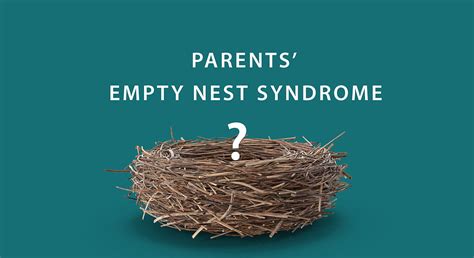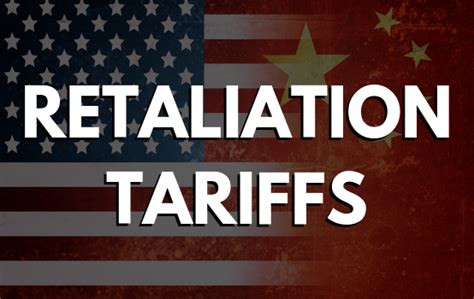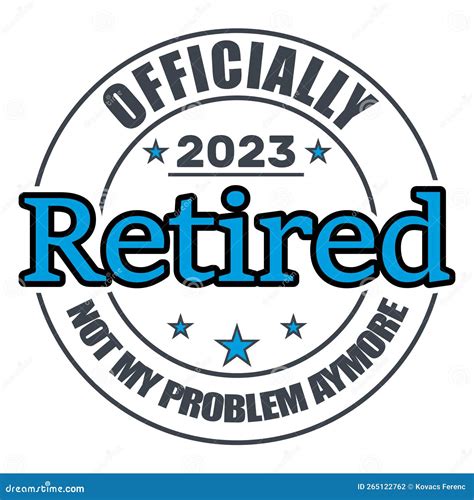
Airbnb, once touted as a convenient and cost-effective hotel alternative, is facing scrutiny as viral social media posts reveal extensive chore lists required of guests before checking out, leading some to question if the platform is losing its appeal. These lists, including tasks like stripping beds, doing laundry, and cleaning toilets, are prompting travelers to reconsider the value proposition of Airbnb compared to traditional hotels, where such responsibilities are typically handled by staff.
The controversy erupted after a user shared a particularly demanding checkout list on social media, sparking widespread debate about the fairness and practicality of these expectations. “Someone shared an Airbnb checkout chore list and people are losing it,” Yahoo Finance reported, highlighting the growing discontent among users who feel they are paying high prices for accommodations while still being required to perform significant cleaning tasks. This situation raises questions about the evolving identity of Airbnb and whether it can maintain its competitive edge in the hospitality market.
The increasing prevalence of these chore lists directly contradicts the initial promise of Airbnb – a seamless and affordable travel experience. Many users are now voicing concerns that the added responsibilities detract from the enjoyment of their vacation and negate the perceived cost savings. The debate extends beyond mere convenience; it touches upon the fundamental principles of service and value in the hospitality industry.
The shared checkout list, which catalyzed this uproar, included a range of tasks that many travelers deemed excessive. “The list included doing laundry, vacuuming, wiping down surfaces, and even cleaning the toilet,” noted the Yahoo Finance article. Such demands, coupled with service fees that often rival hotel costs, are causing potential customers to re-evaluate whether Airbnb still offers a superior alternative to traditional lodging.
This growing backlash comes at a critical time for Airbnb, as the company navigates a post-pandemic travel landscape marked by increased competition and evolving consumer preferences. The challenge for Airbnb is to address these concerns effectively and reaffirm its value proposition in a market where travelers have more options than ever before. If left unaddressed, the issue of excessive chore lists could significantly tarnish Airbnb’s reputation and erode its market share.
The reaction to the shared chore list underscores a broader trend of travelers seeking more transparency and fairness in their accommodation choices. As the lines between traditional hotels and alternative lodging options blur, consumers are becoming increasingly discerning, demanding both convenience and value for their money. Airbnb’s response to this evolving landscape will be crucial in determining its long-term success and relevance in the hospitality industry.
The Rise of Chore Lists and Guest Responsibilities
The core of the controversy stems from the disparity between Airbnb’s initial promise of a hassle-free travel experience and the reality of increasingly demanding chore lists. Originally conceived as a platform connecting travelers with unique and affordable accommodations, Airbnb has evolved into a complex ecosystem with varying standards and expectations. While some hosts maintain reasonable requests, others impose extensive cleaning duties on their guests.
These chore lists can range from simple tasks like taking out the trash and washing dishes to more onerous responsibilities such as stripping beds, vacuuming floors, and cleaning bathrooms. In some cases, hosts even require guests to do laundry before checking out. The justification for these demands often revolves around maintaining cleanliness and reducing cleaning costs, but many guests argue that these tasks should be the responsibility of the host, especially given the service fees that are typically charged.
“Many travelers are used to hotels covering these tasks,” the Yahoo Finance article points out. “The expectation to clean while also paying for the stay has frustrated many.” This frustration is amplified by the lack of consistency across Airbnb listings. While some hosts are transparent about their expectations upfront, others surprise guests with lengthy chore lists upon arrival or departure. This inconsistency creates uncertainty and undermines the overall Airbnb experience.
The increasing prevalence of chore lists can be attributed to several factors. One key driver is the desire among hosts to maximize their profits by minimizing cleaning expenses. By shifting the burden of cleaning onto guests, hosts can reduce their reliance on professional cleaning services and potentially lower their operating costs. Additionally, some hosts may believe that guests are more likely to treat the property with respect if they are required to clean it themselves.
However, this approach overlooks the fact that guests are already paying for the accommodation and often incur additional service fees. The expectation to perform significant cleaning tasks on top of these costs can create a sense of resentment and diminish the perceived value of the Airbnb experience. Furthermore, the lack of standardized cleaning protocols raises concerns about hygiene and safety, as guests may not have the necessary skills or equipment to properly disinfect the property.
The proliferation of chore lists also reflects a shift in the power dynamic between hosts and guests. In the early days of Airbnb, the platform was characterized by a spirit of community and mutual trust. However, as Airbnb has grown in popularity, the relationship between hosts and guests has become more transactional, with a greater emphasis on financial considerations. This shift has led some hosts to adopt a more demanding and less accommodating approach, resulting in increased guest dissatisfaction.
The Impact on Airbnb’s Brand and Reputation
The controversy surrounding chore lists has the potential to significantly impact Airbnb’s brand and reputation. In an increasingly competitive market, Airbnb relies on its image as a convenient, affordable, and unique alternative to traditional hotels. However, the perception that guests are being burdened with excessive cleaning responsibilities can undermine this image and erode consumer trust.
The negative publicity generated by viral social media posts and news articles can deter potential customers from using Airbnb. Many travelers may be unwilling to risk encountering a demanding host or being subjected to a lengthy chore list. Instead, they may opt for the predictability and convenience of traditional hotels, where cleaning is typically included in the price.
The impact on Airbnb’s reputation is further compounded by the lack of transparency and consistency in its policies. While Airbnb provides guidelines for hosts regarding cleaning expectations, these guidelines are often vague and open to interpretation. This lack of clarity can create confusion and lead to disputes between hosts and guests.
Moreover, Airbnb’s response to complaints about excessive chore lists has been criticized as inadequate. Many guests report that Airbnb’s customer service representatives are unable or unwilling to resolve disputes related to cleaning responsibilities. This perceived lack of support can further damage Airbnb’s reputation and alienate dissatisfied customers.
The long-term consequences of this controversy could be significant. If Airbnb fails to address the issue of chore lists effectively, it risks losing market share to traditional hotels and other alternative lodging options. Additionally, the negative publicity could make it more difficult for Airbnb to attract new hosts and retain existing ones.
The Competitive Landscape and Alternative Lodging Options
The debate over Airbnb chore lists is occurring within a broader context of increasing competition in the hospitality industry. Traditional hotels are investing in renovations and technology to enhance the guest experience and attract a wider range of travelers. Additionally, new alternative lodging options, such as boutique hotels, serviced apartments, and vacation rentals, are emerging to cater to specific needs and preferences.
In this competitive landscape, Airbnb must differentiate itself by offering a compelling value proposition that justifies its continued relevance. However, the perception that guests are being burdened with excessive cleaning responsibilities undermines this value proposition and makes it more difficult for Airbnb to compete effectively.
Traditional hotels offer several advantages over Airbnb in terms of convenience and predictability. Hotels typically provide daily housekeeping services, ensuring that guests can relax and enjoy their stay without having to worry about cleaning. Additionally, hotels offer a range of amenities, such as restaurants, bars, and fitness centers, that enhance the overall guest experience.
Alternative lodging options, such as serviced apartments, offer a hybrid approach that combines the convenience of a hotel with the privacy and flexibility of a vacation rental. Serviced apartments typically include housekeeping services, as well as fully equipped kitchens and living areas. This allows guests to enjoy the comforts of home while also benefiting from hotel-style amenities.
Vacation rentals, offered through platforms like VRBO and HomeAway, provide a similar experience to Airbnb, but often with a greater emphasis on luxury and exclusivity. Vacation rentals tend to be larger and more upscale than typical Airbnb listings, and they often include amenities such as private pools, hot tubs, and gourmet kitchens.
In order to remain competitive, Airbnb must address the concerns surrounding chore lists and reaffirm its value proposition. This may involve implementing stricter guidelines for hosts regarding cleaning expectations, providing better customer service support, and investing in cleaning services to alleviate the burden on guests.
Potential Solutions and Policy Changes
Addressing the controversy surrounding Airbnb chore lists requires a multifaceted approach that involves policy changes, improved communication, and enhanced customer support. Airbnb can take several steps to mitigate the negative impact of chore lists and restore trust among its users.
One potential solution is to implement stricter guidelines for hosts regarding cleaning expectations. These guidelines should clearly define the types of tasks that are considered reasonable for guests to perform, as well as the tasks that are the responsibility of the host. Airbnb could also establish a rating system for hosts based on their cleaning expectations, allowing guests to make informed decisions when booking a property.
Another approach is to require hosts to be more transparent about their cleaning expectations upfront. This could involve including a detailed list of required chores in the property description, as well as providing clear instructions on how to perform these tasks. Airbnb could also implement a standardized checklist that hosts can use to communicate their cleaning expectations to guests.
In addition to policy changes, Airbnb needs to improve its customer service support for guests who encounter excessive chore lists. This could involve providing a dedicated hotline or email address for guests to report complaints about cleaning responsibilities. Airbnb should also empower its customer service representatives to resolve disputes related to chore lists fairly and efficiently.
Airbnb could also consider investing in cleaning services to alleviate the burden on guests. This could involve partnering with local cleaning companies to provide discounted cleaning services to hosts. Airbnb could also offer a cleaning credit to guests who are required to perform excessive chores.
Another potential solution is to implement a mandatory cleaning fee for all Airbnb listings. This fee would be used to cover the cost of professional cleaning services, ensuring that guests are not burdened with cleaning responsibilities. This approach would also provide greater transparency and predictability in pricing, as guests would know upfront the total cost of their stay.
Finally, Airbnb should consider educating hosts about the importance of providing a positive guest experience. This could involve offering training programs that emphasize the value of hospitality, cleanliness, and customer service. Airbnb could also incentivize hosts to provide exceptional service by offering rewards and recognition.
By implementing these solutions, Airbnb can address the concerns surrounding chore lists and restore trust among its users. This will help Airbnb to remain competitive in the hospitality industry and maintain its position as a leading platform for alternative lodging.
The Future of Airbnb and the Sharing Economy
The controversy surrounding Airbnb chore lists raises broader questions about the future of the sharing economy and the evolving relationship between providers and consumers. As platforms like Airbnb mature, they face increasing pressure to balance the interests of hosts and guests, as well as to address concerns about fairness, transparency, and accountability.
The sharing economy was initially characterized by a spirit of community and collaboration, with a focus on sharing resources and building relationships. However, as these platforms have grown in popularity, they have become more commercialized, with a greater emphasis on financial considerations. This shift has led to concerns about exploitation, inequality, and the erosion of trust.
In order to ensure the long-term sustainability of the sharing economy, platforms like Airbnb must prioritize the interests of all stakeholders. This involves creating a level playing field for hosts and guests, as well as addressing concerns about labor standards, environmental impact, and community relations.
The future of Airbnb will depend on its ability to adapt to changing consumer expectations and to address the challenges facing the sharing economy. This requires a commitment to transparency, accountability, and ethical business practices. By prioritizing the interests of all stakeholders, Airbnb can ensure that it remains a leading platform for alternative lodging for years to come.
FAQ: Airbnb Chore List Controversy
-
What is the Airbnb chore list controversy about?
The Airbnb chore list controversy revolves around the increasing prevalence of extensive cleaning tasks that hosts require guests to perform before checking out. These tasks often include stripping beds, doing laundry, vacuuming, and cleaning bathrooms. Many guests feel that these demands are unreasonable, especially given the service fees they pay, and argue that they negate the value proposition of Airbnb compared to traditional hotels.
-
Why are Airbnb hosts requiring guests to do chores?
Hosts require guests to do chores for several reasons. Some hosts aim to minimize cleaning expenses by shifting the burden of cleaning onto guests. Others believe that guests are more likely to treat the property with respect if they are required to clean it themselves. Some might also not have professional cleaners available in their area or at the times needed.
-
How does this affect Airbnb’s brand and reputation?
The controversy can significantly damage Airbnb’s brand and reputation. The perception that guests are burdened with excessive cleaning responsibilities can deter potential customers, who may opt for the predictability and convenience of traditional hotels. Negative publicity generated by social media posts and news articles can erode consumer trust and make it harder for Airbnb to attract new hosts and retain existing ones.
-
What can Airbnb do to address the chore list issue?
Airbnb can implement several solutions, including:
- Stricter guidelines for hosts regarding cleaning expectations, clearly defining which tasks are reasonable for guests.
- Requiring hosts to be more transparent about cleaning expectations upfront in the property description.
- Improving customer service support for guests who encounter excessive chore lists.
- Investing in cleaning services or offering cleaning credits to alleviate the burden on guests.
- Implementing a mandatory cleaning fee to cover the cost of professional cleaning services.
-
Are there any alternatives to Airbnb that don’t require chores?
Yes, several alternatives to Airbnb exist that generally do not require guests to perform chores. These include traditional hotels, which typically provide daily housekeeping services; serviced apartments, which combine hotel-style amenities with the privacy of a vacation rental; and vacation rentals offered through platforms like VRBO and HomeAway, which often focus on luxury and exclusivity and include cleaning services in their overall offering.









